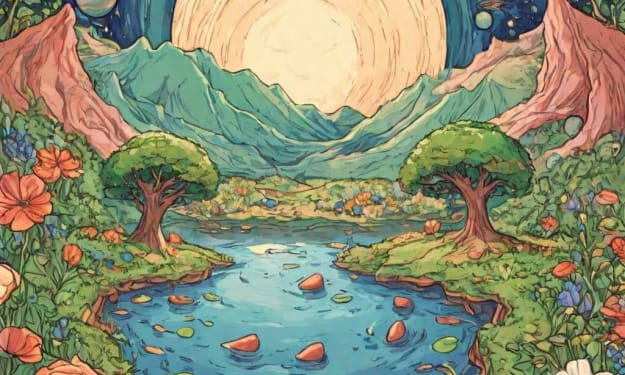What happens if all the snow melts?
Snow Melts

As temperatures rise and climate patterns shift, the prospect of all the snow melting on Earth's surface looms ominously on the horizon. While the idea of a world without snow may seem inconceivable, the consequences of such a scenario could be profound, touching every corner of the globe and reshaping ecosystems, economies, and human societies.
At the heart of this concern lies the delicate balance of Earth's climate system. Snow plays a crucial role in regulating global temperatures, reflecting sunlight back into space and helping to maintain the planet's energy balance. As snow cover diminishes, more sunlight is absorbed by the Earth's surface, leading to further warming—a feedback loop known as the albedo effect.
One of the most immediate and visible impacts of melting snow is the rise in sea levels. Snowpack stored in mountainous regions serves as a natural reservoir, releasing water gradually over time and replenishing rivers and streams. As this snowpack diminishes, the rate of runoff increases, leading to higher water levels in rivers and ultimately contributing to sea level rise. Coastal communities around the world, already vulnerable to the effects of climate change, will face increased risk of flooding and erosion as sea levels continue to climb.
The loss of snow cover also threatens to disrupt water supplies for millions of people who rely on snowmelt for drinking water, irrigation, and hydroelectric power. In regions like the Western United States, where snowpack serves as a vital source of water for agriculture and urban areas, dwindling snowfall could exacerbate existing water shortages and strain already-stressed water resources.
Beyond its direct impacts on water supplies, the melting of snow could have far-reaching consequences for ecosystems and biodiversity. Snow-covered landscapes provide critical habitat for a wide range of plant and animal species, from alpine flora adapted to cold temperatures to iconic creatures like polar bears and snow leopards. As snow cover diminishes, these species may face increased pressure as their habitats shrink and shift in response to changing climatic conditions.
In addition to its ecological impacts, the loss of snow could have profound implications for winter recreation and tourism industries. Ski resorts, snowmobile operators, and other businesses that rely on winter sports for revenue may find themselves increasingly vulnerable as snowpack diminishes and snowfall becomes less reliable. Communities that depend on winter tourism as a major economic driver could see declines in visitor numbers and revenue, leading to job losses and economic hardship.
The melting of snow also poses significant challenges for agriculture and food security. Snowmelt provides essential moisture for crops during the growing season, particularly in regions with Mediterranean or semi-arid climates where precipitation is limited. As snowpack diminishes, farmers may face reduced yields and increased risk of drought, threatening food production and livelihoods for millions of people around the world.
Perhaps most concerning of all are the broader implications of melting snow for the stability of Earth's climate system. Snow cover acts as a natural thermostat, helping to regulate temperatures and maintain equilibrium in the atmosphere. As snowpack diminishes, this delicate balance is disrupted, leading to more extreme weather events, such as heatwaves, droughts, and storms. These changes can have far-reaching consequences for human societies, from disruptions to agricultural production to increased risk of natural disasters.
In the face of these daunting challenges, it is clear that urgent action is needed to address the root causes of climate change and mitigate its impacts. Transitioning to renewable energy sources, reducing greenhouse gas emissions, and investing in climate-resilient infrastructure are just a few of the steps that can help to safeguard our planet's snow cover and protect the ecosystems and communities that depend on it.
As we confront the prospect of a world without snow, we must recognize the interconnectedness of all life on Earth and work together to build a more sustainable and resilient future for generations to come. The fate of our planet—and all its inhabitants—hangs in the balance, and the time to act is now.





Comments
There are no comments for this story
Be the first to respond and start the conversation.